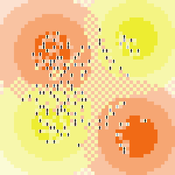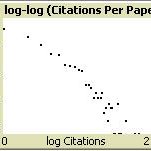Christopher Watts
Affiliations Personal homepagehttps://github.com/innovative-simulator
ORCID more infohttps://orcid.org/0000-0002-0861-9815
GitHub more info
I am an agent-based simulation modeler and social scientist living near Cambridge, UK.
In recent years, I have developed supply chain models for Durham University (Department of Anthropology), epidemiological models for the Covid-19 pandemic, and agent-based land-use models with Geography PhD students at Cambridge University.
Previously, I spent three years at Ludwig-Maximillians University, Munich, working on Human-Environment Relations and Sustainability, and over two and a half years at Surrey University, working on Innovation with Nigel Gilbert in the Centre for Research in Social Simulation (CRESS). The project at Surrey resulted in a book in 2014, “Simulating Innovation: Computer-based Tools for Rethinking Innovation”. My PhD topic, modeling human agents who energise or de-energise each other in social interactions, drew upon the work of sociologist Randall Collins. My multi-disciplinary background includes degrees in Operational Research (MSc) and Philosophy (BA/MA).
I got hooked on agent-based modeling and complexity science some time around 2000, via the work of Brian Arthur, Stuart Kauffman, Robert Axelrod and Duncan Watts (no relation!).
Research Interests
As an agent-based modeler, I specialize in NetLogo. For data analysis, I use Excel/VBA, and R, and occasionally Python 3, and Octave / MatLab.
My recent interests include:
* conflict and the emergence of dominant groups (in collaboration with S. M. Amadae, University of Helsinki);
* simulating innovation / novelty, context-dependency, and the Frame Problem.
When not working on simulations, I’m probably talking Philosophy with one of the research seminars based in Cambridge. I have a particular interests when these meet my agent-based modeling interests, including:
* Social Epistemology / Collective Intelligence;
* Phenomenology / Frame Problem / Context / Post-Heideggerian A.I.;
* History of Cybernetics & Society.
If you’re based near Cambridge and have an idea for a modeling project, then, for the cost of a coffee / beer, I’m always willing to offer advice.
SugarscapeCW
Christopher Watts | Published Saturday, August 01, 2015 | Last modified Wednesday, April 12, 2023A replication in Netlogo 5.2 of the classic model, Sugarscape (Epstein & Axtell, 1996).
Citation Agents: A model of collective learning through scientific publication
Christopher Watts | Published Friday, July 31, 2015Simulates the construction of scientific journal publications, including authors, references, contents and peer review. Also simulates collective learning on a fitness landscape. Described in: Watts, Christopher & Nigel Gilbert (forthcoming) “Does cumulative advantage affect collective learning in science? An agent-based simulation”, Scientometrics.
Under development.

